15 Underrated Game Boy Advance Games
The Game Boy Advance's legendary library includes a variety of underrated titles that remain criminally overlooked to this day.
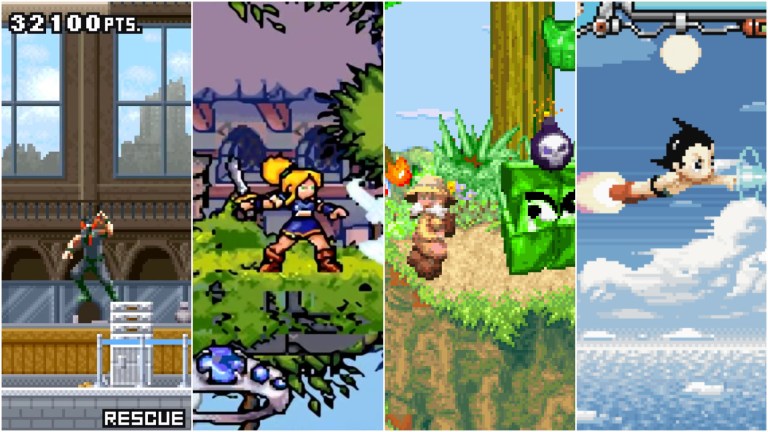
When the Game Boy Advance hit shelves in Japan on March 21, 2001, Nintendo was still riding the incredible success of the original Game Boy. After more than a decade of the Game Boy’s handheld dominance, though, gamers eagerly awaited the next evolution in portable gaming. The GBA delivered that evolution.
In fact, many features we now take for granted in portables like the Switch can be traced back to the GBA. The addition of shoulder buttons, full 32-bit color graphics, and eventually even built-in backlighting with the 2003 release of the Game Boy Advance SP were all lauded as welcome innovations and improvements. Sadly, the GBA’s time in the sun was remarkably short. Pressured by the upcoming release of the Sony PSP, Nintendo released the GBA’s successor, the Nintendo DS, less than four years after the launch of the GBA.
Yet, GBA games continued to be released all the way into 2008. The GBA is still fondly remembered for its excellent ports of games like Super Mario World and The Legend of Zelda: A Link to the Past, and for helping launch new franchises like Mega Man Zero and Golden Sun, but its library was much more than just those major titles. Dig a little deeper into it and you’ll find that the GBA was also home to some truly excellent hidden gems that are still worth checking out 20 years later.
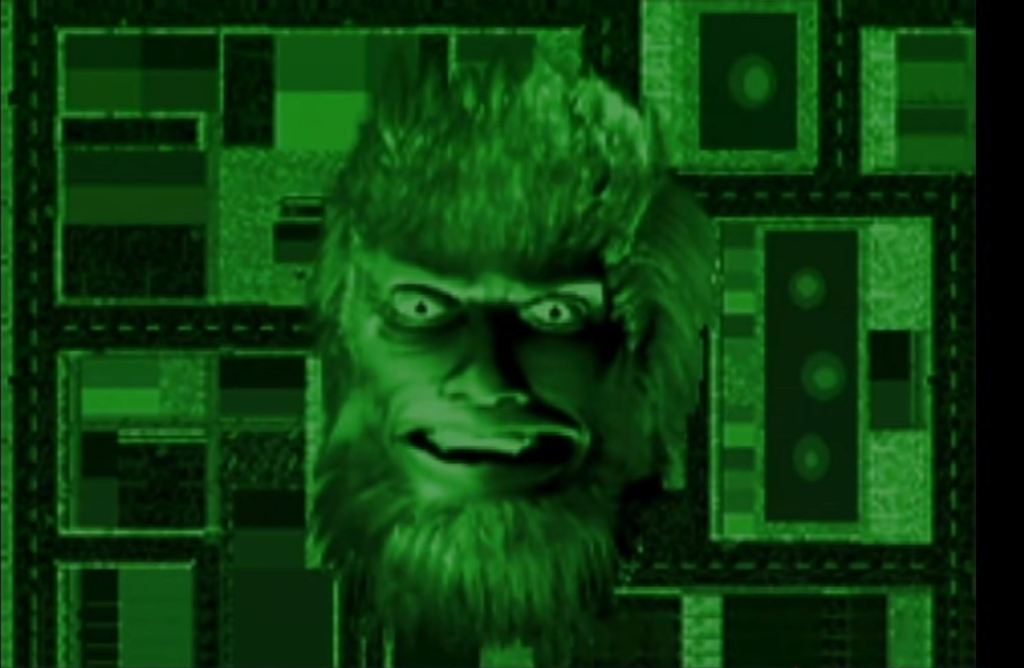
15. Urban Yeti!
2002 | Cave Barn Studios
Keep in mind that in the early 2000s, developing games for the GBA was much cheaper than making a console game. Steam wasn’t a thing yet, and cell phones could barely run Snake. So, if you were an ambitious young developer with a goofy idea and a dream, your best bet for making it happen was to put it on Nintendo’s handheld.
Urban Yeti! is the type of weird, charming experience that typically only finds a cult audience on PCs nowadays. You play from a top-down perspective as the titular Yeti who is looking for his mate in a small city. Most of the time, the game plays like the first two Grand Theft Auto games with even more chances to punch random pedestrians. More importantly, finding a boombox starts a dancing freak out that clears the screen of enemies, and “missions” take the form of minigames inspired by titles like Toobin’ and Root Beer Tapper.
It’s weird and short, but always hilarious, and it’s unfortunately become increasingly obscure since its release.
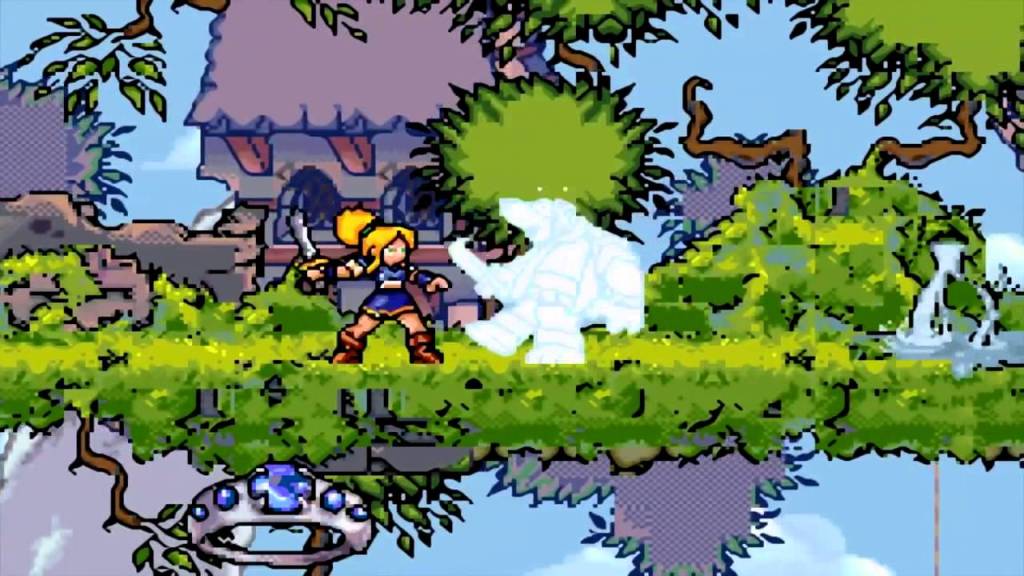
14. Lady Sia
2001 | RFX Interactive
Most of the platformers on the GBA were either fantastic SNES ports or dreadful licensed fare, but a few original titles do stand out. The first thing you’ll probably notice about Lady Sia is that it looks great. Its big, bright graphics were a perfect fit for the GBA’s small screen. The gameplay is also surprisingly deep and utilizes combos, magic attacks, and even the ability to shape shift into a sasquatch during boss fights. Yes, this is the second game on the list to feature a playable Bigfoot, but we promise it’s the last.
Lady Sia was fairly well received at the time of its release, and a sequel was even planned in 2003. Sadly, it was canceled due to a lack of funding.
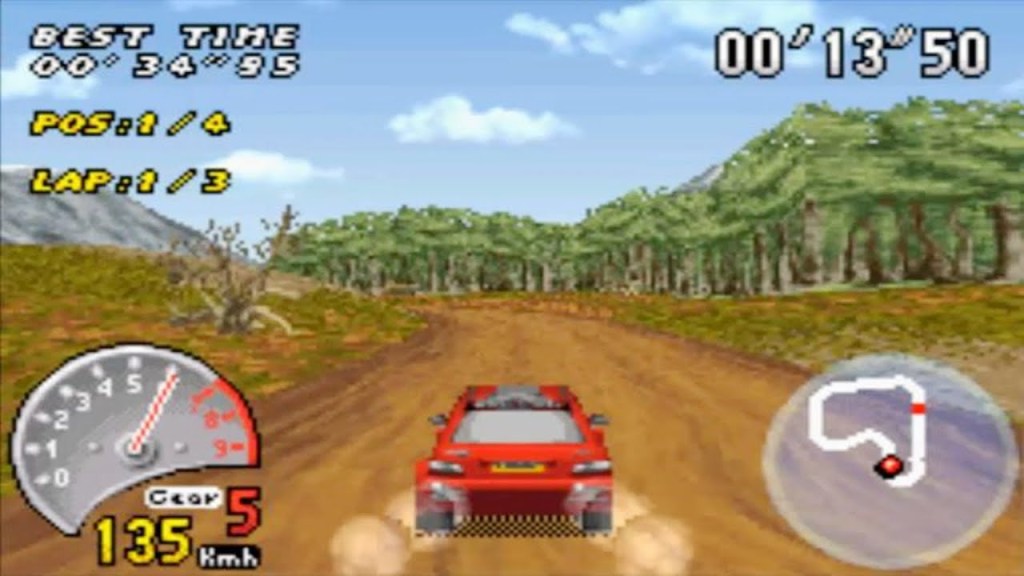
13. V-Rally 3
2002 | Velez & Dubail
The GBA was released at a time when the vast majority of console games were going full 3D. The GBA, however, was obviously built with 2D pixel games in mind. Those perceived limitations didn’t stop some developers from pushing the limits of what the handheld was capable of, though, as evidenced by the V-Rally 3 team managing to cram fully polygonal cars into the GBA.
Graphically, V-Rally 3 is undoubtedly the best-looking game on the system. Its surprisingly detailed outdoor tracks could easily be mistaken for an N64 game. You can even play the entire career mode in first-person. Thanks to some surprisingly smooth handling, though, V-Rally 3 proves to be much more than just great visuals. It may not look like much compared to modern racers, but it’s still the undisputed pinnacle of racing on the GBA.
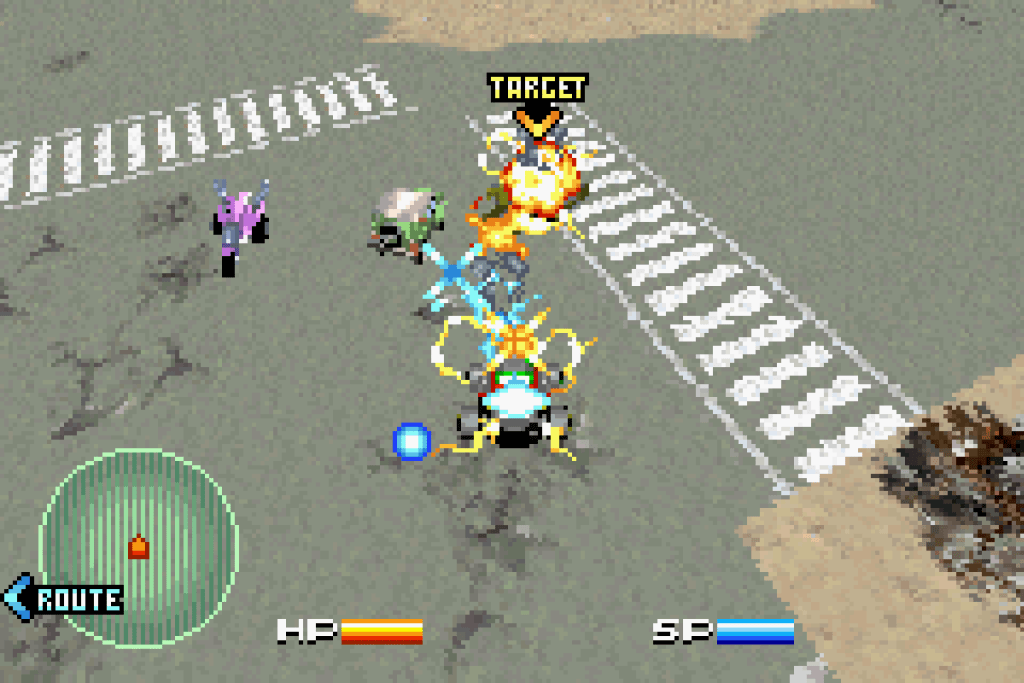
12. Car Battler Joe
2002 | Ancient
Car Battler Joe is a decent RPG mixed with awesome car battling sections that elevate it above most of the GBA’s library. The story isn’t great (your father is missing and you have to find him), but the hook is that in this world, cars are a rarity. As such, you have to build your own Mad Max-style vehicle from spare parts found around the world and eventually battle other vehicles as you work to finish your quest.
That concept alone is begging for a sequel or spiritual successor. Sadly, most people have long forgotten about Joe, and even its re-release on the Wii U eShop in 2015 didn’t garner much attention.
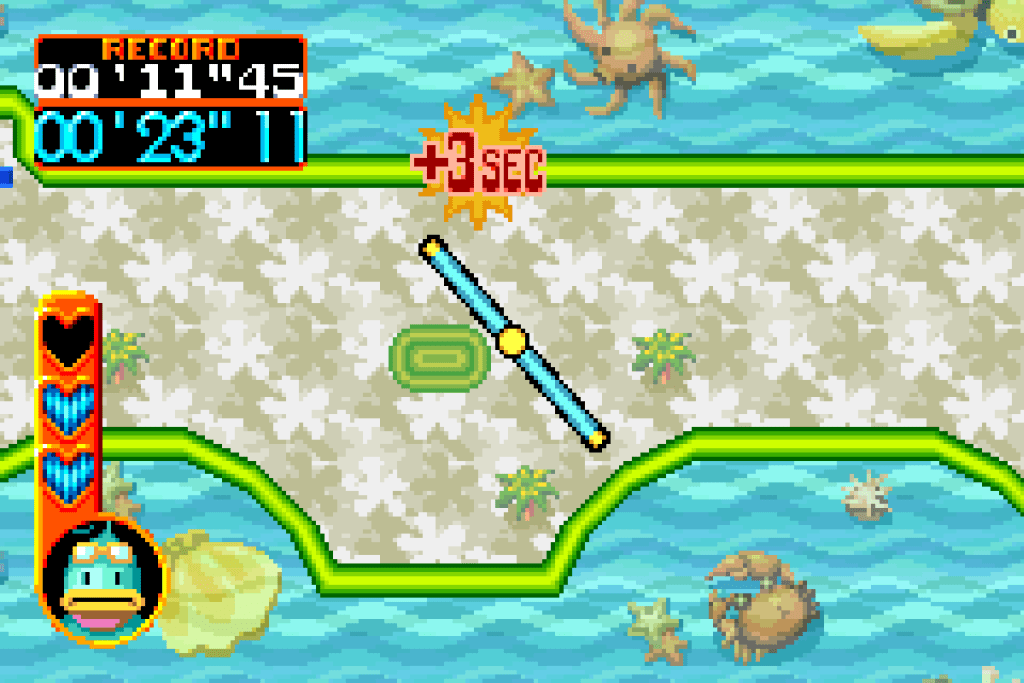
11. Kuru Kuru Kururin
2001 | Eighting
Kuru Kuru Kururin is one of those puzzle games that sounds so simple in theory but ends up being surprisingly complex and a lot of fun. You play as a rotating stick (or “helicopter” in the North American version) that must make it to the goal at the end of a series of mazes. You control how quickly the stick rotates, and you’ll need to master that mechanic as the difficulty ramps up significantly in the later levels. This game remains a remarkably addictive experience until the end.
Though Kuru Kuru Kururin‘s core concept boasts nearly universal appeal, the game was only released on the GBA in Japan and Europe. A localized version finally made its way to North America in 2016 through the Wii U eShop, but Nintendo of America seems oddly stubborn about acknowledging the series. Neither of its two sequels ever made it out of Japan.
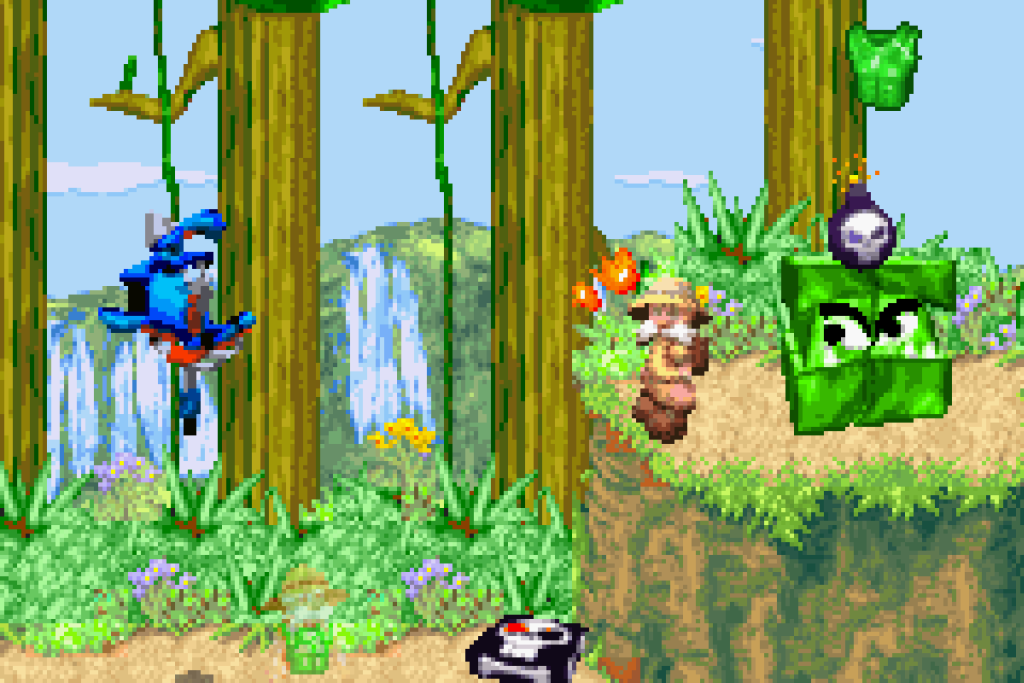
10. Sabre Wulf
2004 | Rare
Most gamers say that Rare peaked during the N64 era with a string of successful platformers and shooters, but old-school Rare still managed to squeeze out a handful of classic games for the GBA after the company was sold to Microsoft in 2002. Everything gamers love about classic Rare games is on full display in Sabre Wulf: the cutting-edge graphics, tight controls, and the trademark offbeat British sense of humor.
Unfortunately, Sabre Wulf didn’t find much of an audience. Prior to the release of this title, the Sabreman character hadn’t starred in a game in almost 20 years. The updated gameplay apparently didn’t appeal to older fans, and wasn’t innovative enough to attract younger gamers. It’s aged better than many other GBA games, though, and it’s certainly well worth a playthrough now.
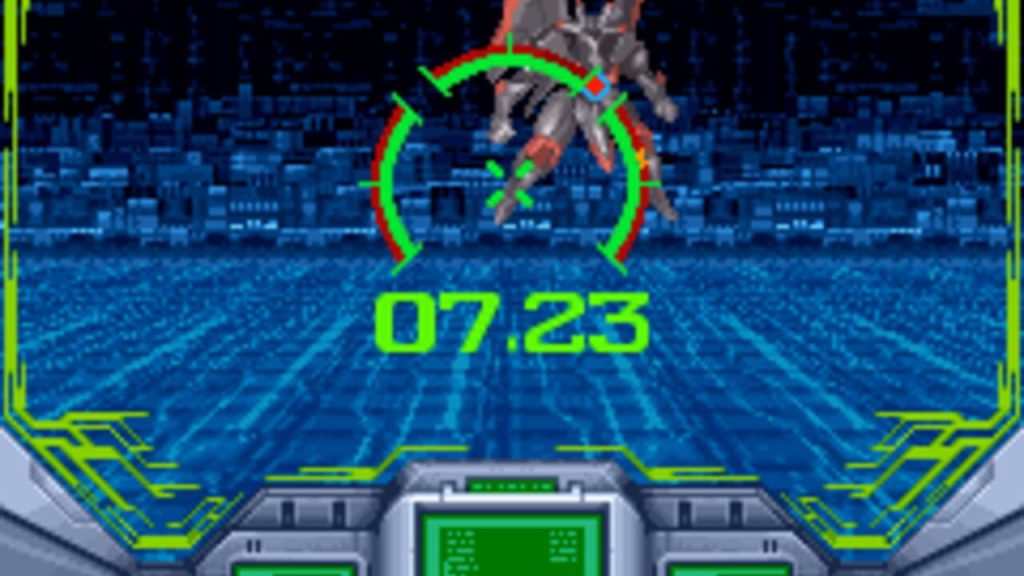
9. Zone of the Enders: The Fist of Mars
2002 | Konami
While it was never as successful as Hideo Kojima’s other games, the Zone of the Enders series is still fondly remembered for some of the better action games of the PS2 era. Their unique mecha combat and Kojima’s flair for cinematic storytelling helped those games stand out from a competitive pack.
Unlike its console brethren, The Fist of Mars is a turn-based strategy game. That means it’s not nearly as fast-paced as the other Zone of the Enders games, but there is an aiming reticle for targeting enemies, so this is more action-oriented than the typical strategy game.
While Kojima wasn’t directly involved in the development of The Fist of Mars, the writing is surprisingly strong, hitting all the right dramatic and philosophical notes that mecha fans have come to expect from the genre.
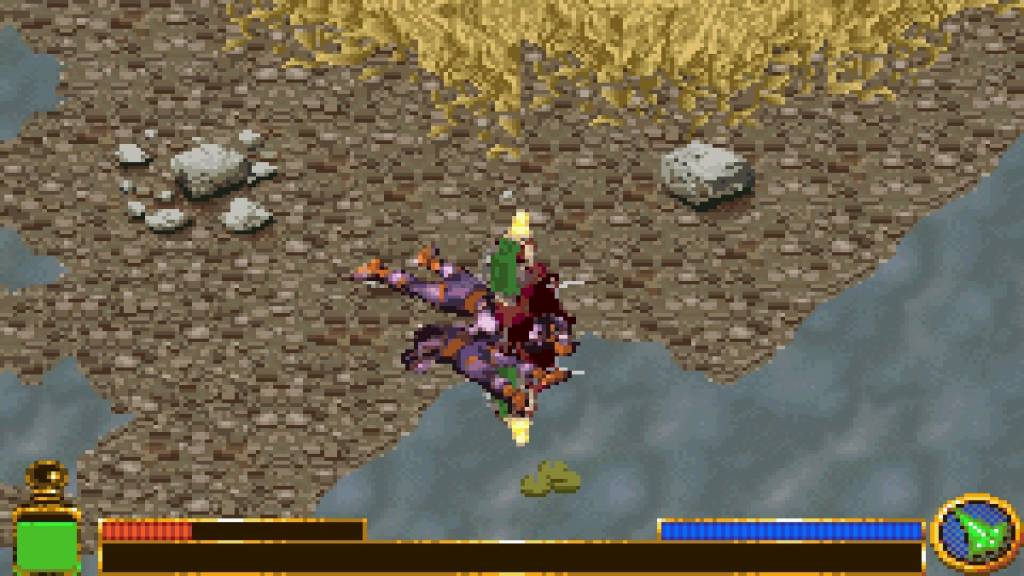
8. The Lord of the Rings: The Return of the King
2003 | Griptonite Games
EA released a couple of solid beat ‘em ups for consoles to coincide with the release of Peter Jackson’s Lord of the Rings trilogy, but the GBA versions are actually even better than those largely beloved adaptations. Like The Two Towers tie-in released a year prior, The Return of the King is basically Diablo in Middle Earth.
There are a whopping eight different playable characters pulled from the movie. Despite the technical constraints of the GBA, each of those characters plays completely differently. Aragorn is the classic warrior, Legolas is the able-bodied archer, and Gandalf uses magic to fell waves of orcs. They’re even all completely customizable with their own weapons and equipment.
The GBA version of Return of the King still stands out as one of the best Lord of the Rings games ever made, and future games inspired by Tolkien’s books would do well take a few cues from it.
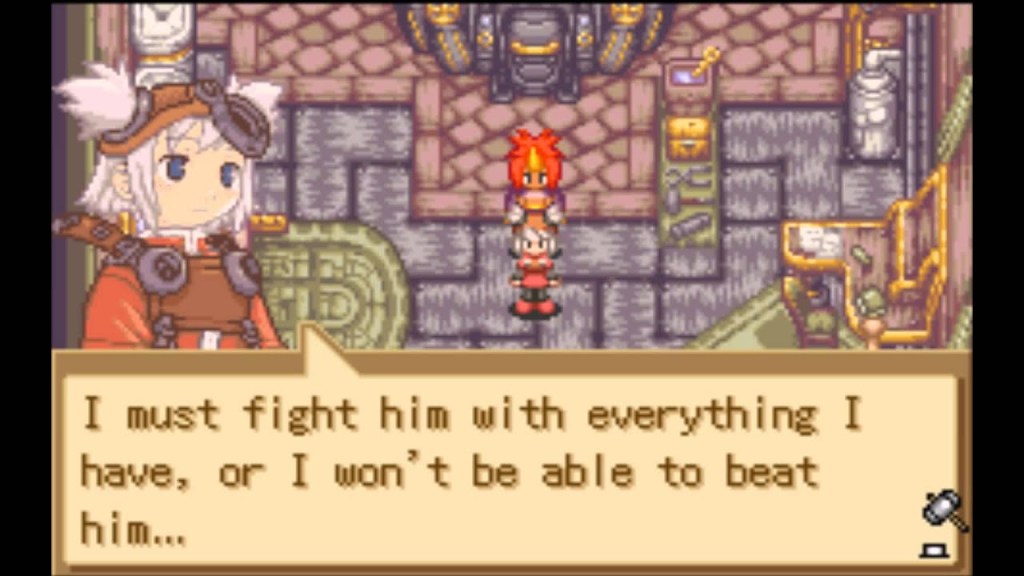
7. Summon Night: Swordcraft Story
2006 | Flight-Plan
Thanks to lower development costs, the GBA featured many experiments that led to unusual combinations of genres. For instance, whereas many dungeon crawlers are typically slow, plodding affairs, Summon Night: Swordcraft Story sped things up through fast-paced, real-time battles inspired by the Tales of series. Battles in Swordcraft Story story are an absolute joy since you’re doing more than just scrolling through menus.
The sequel, released just a few months later on the GBA, is also worth checking out. Sadly, while the Summon Night main series is still chugging along, the Swordcraft Story subseries looks to be abandoned at this point.
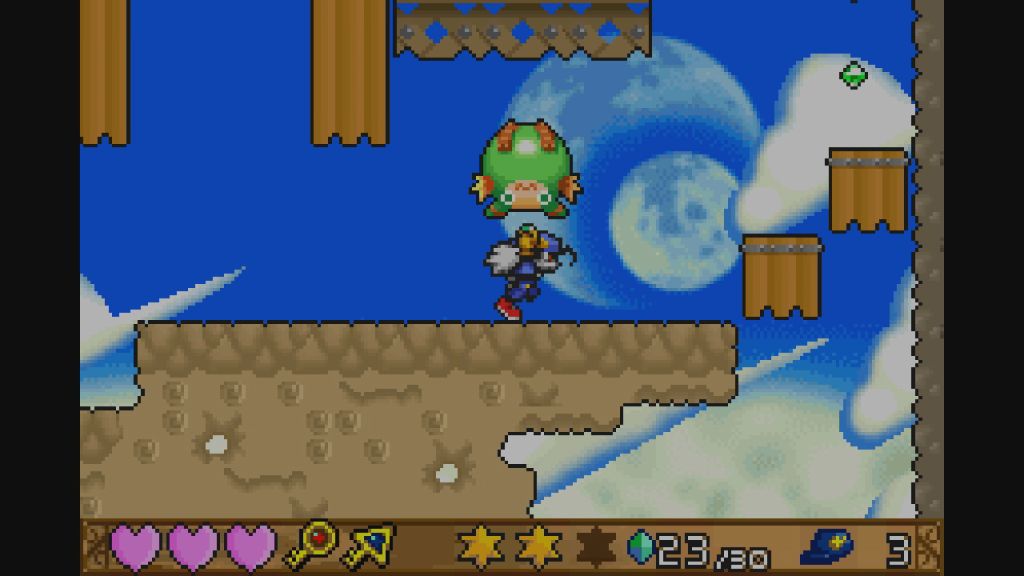
6. Klonoa: Empire of Dreams
2001 | Namco
For a brief period in the early 2000s, the Klonoa series felt like it was on the verge of becoming a household name. All of the games were praised for their tight, diverse platforming, and the series’ word of mouth was generally strong, but the games just never seemed to reach a large audience.
Empire of Dreams is a side-story set between the events of the two console Klonoa games. It features the same use of the “wind bullet” to capture enemies and the same creative level design as its console big brothers. While it can’t pull off the 3D effects featured in those games, impressive multiplane backgrounds and advanced rotation effects do help it stand out among the GBA’s crowded library of platformers.
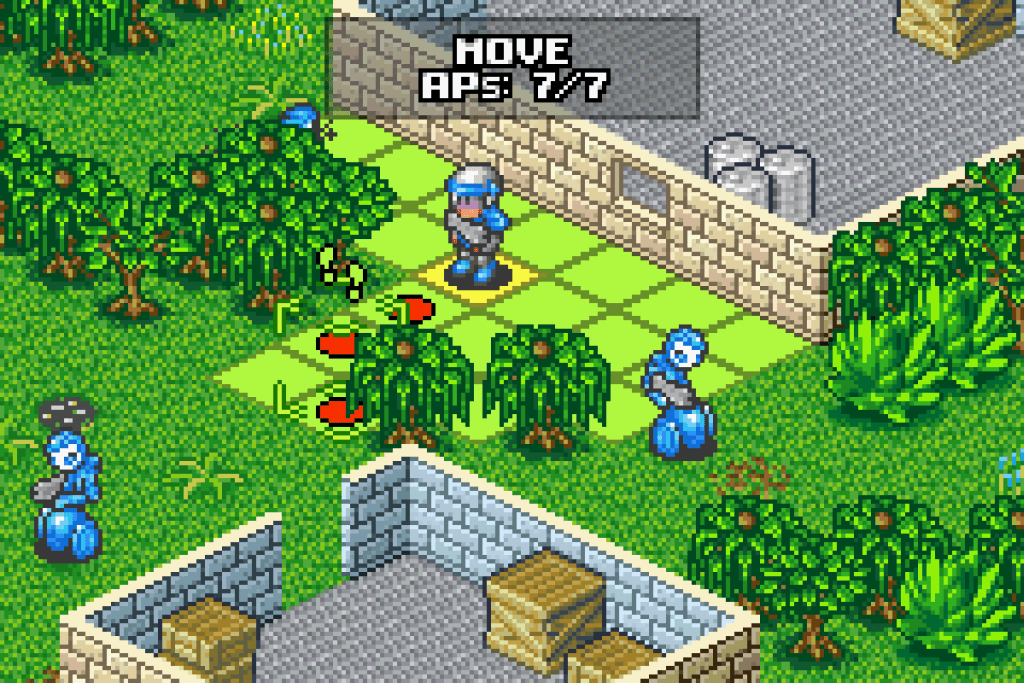
5. Rebelstar: Tactical Command
2005 | Codo Technologies
Don’t be fooled by the Rebelstar name: this is actually an X-Com game through and through. While there’s no base building or resource management in this GBA title, that classic tactical combat against an alien threat that defines the X-Com series can be found here in all its glory. Then again, what else would you expect? Rebelstar was created by the same guy behind X-Com, Julian Gollop.
Of course, this being a GBA game, Rebelstar’s visuals aren’t quite up to par with an X-Com title. In fact, some may find its more cartoony style jarring when paired with this style of gameplay, but Rebelstar certainly makes for a unique experience compared to the other tactics games out there.
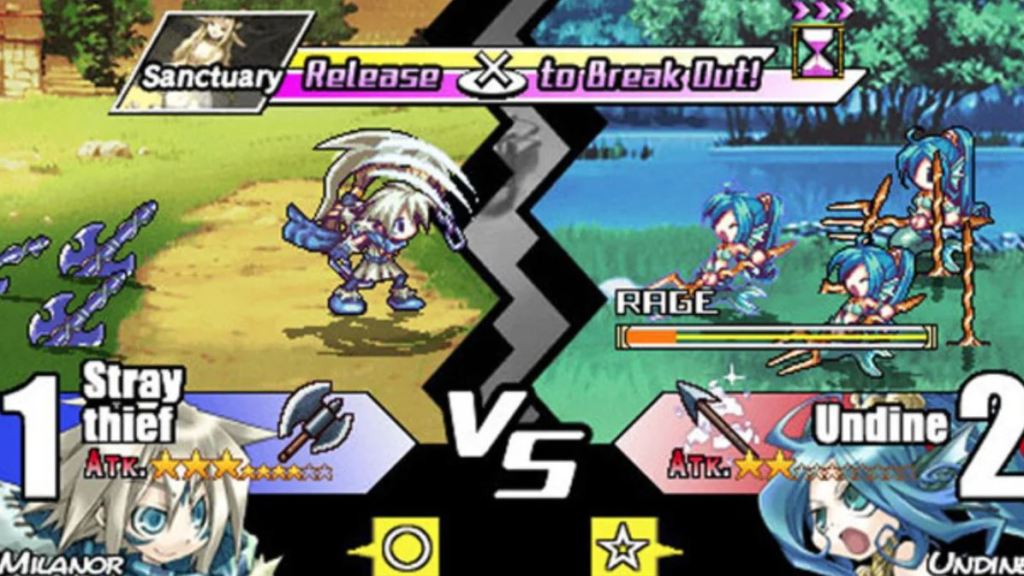
4. Yggdra Union
2006 | Sting Entertainment
The final days of any gaming platform are a dark time typically defined by sporadic releases and shovelware. Yet, every now and then, a bright spot appears for those gamers who haven’t yet moved on to the next generation. As a deep mix of tactical RPG mechanics and card battles bolstered by some of the best 2D graphics on the portable, Yggdra Union is one of the better games released in the GBA’s post-DS era.
While the game’s story isn’t great, the regular banter between party members is charming, and there is a lot of content to keep you busy if the gameplay manages to hook you. A Switch port was even released in Japan last year, so keep your fingers crossed that it makes its way stateside.

3. Drill Dozer
2006 | Game Freak
Game Freak will always be known for the massively successful Pokemon franchise, but the developer has occasionally dabbled in other genres. The best of those experiments has to be Drill Dozer: a game about drilling. Need to go forward? Try drilling. Backward? Also drilling. What about jumping? Yeah, that actually involves drilling, too. It sounds repetitive, but there are so many different ways use to Jill’s Drill Dozer that the mechanic actually never wears out its welcome.
It might be tempting to check out Drill Dozer via emulation, but it’s actually worth tracking down the original cartridge for this one since it’s one of only two GBA games to feature a rumble back in the cart. It adds quite a lot to the experience.
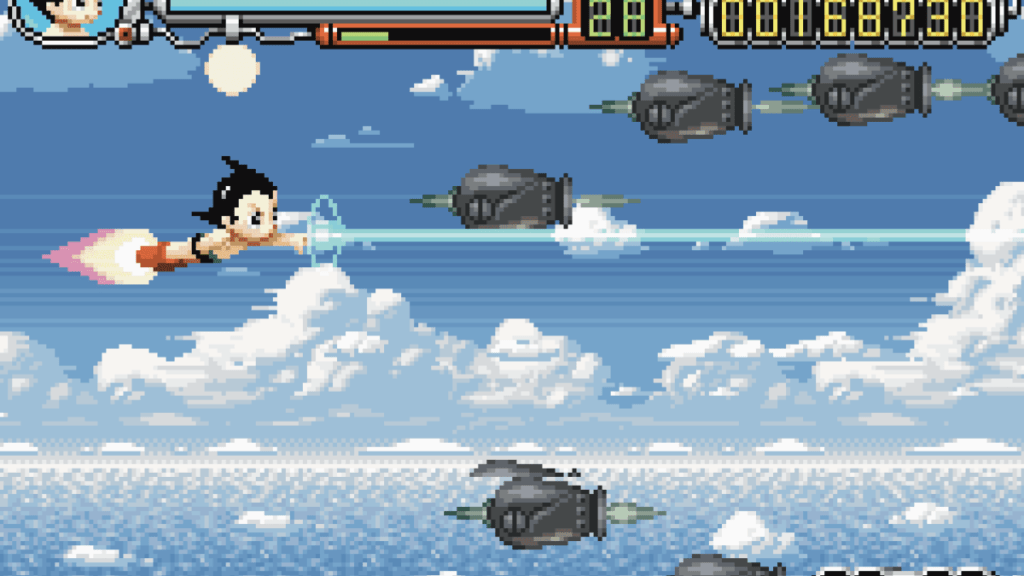
2. Astro Boy: Omega Factor
2004 | Treasure
A handheld game based on an anime that hasn’t been popular in the United States since the ‘60s sounds like a recipe for disaster, but legendary Japanese developer Treasure could do no wrong in the ‘90s and early 2000s. Like most of the games in the Treasure catalog, Astro Boy: Omega Factor features fast arcade gameplay, massive screen-filling special attacks, and some of the most beautiful sprites the GBA could produce.
Though Treasure was once a prolific developer, responsible for classics like Ikaruga and Sin & Punishment, the company has gone quiet in recent years. The studio hasn’t even released a game stateside in the last decade. However, a re-release of this gem could mark a great comeback for the legendary developer if the licensing could be worked out.
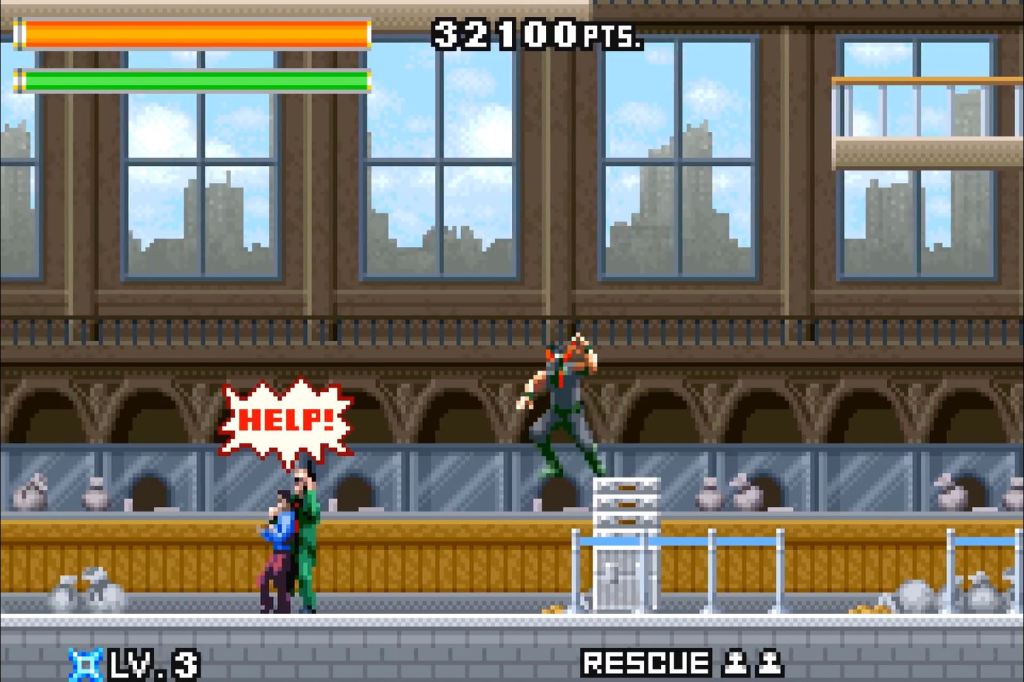
1. Ninja Five-O
2003 | Hudson Soft
Ninja Five-O should have been a system seller for the GBA. The game feels like a lost classic from the 16-bit era. It’s a beautiful combination of Ninja Gaiden and Bionic Commando bolstered by tight controls and an over-the-top story about a magic-wielding ninja who is also a cop. Anyone who has managed to track down a copy swears up and down that it’s one of the very best experiences on the handheld.
Yet, Ninja Five-O was set up to fail from the start. It’s unknown how many copies were made, but it was nearly impossible to find one at the time of its release. Even though the game was developed in Japan, it was never even released there. Media outlets also barely covered it. Yet, the legend of Joe Osugi has only grown over the years, with complete copies of this game regularly selling on eBay for around $1,000. Even an authentic standalone cartridge will set you back several hundred dollars. You know what, though? It’s actually one of the few rare games that may be worth the price. It really is as good as you’ve heard.
